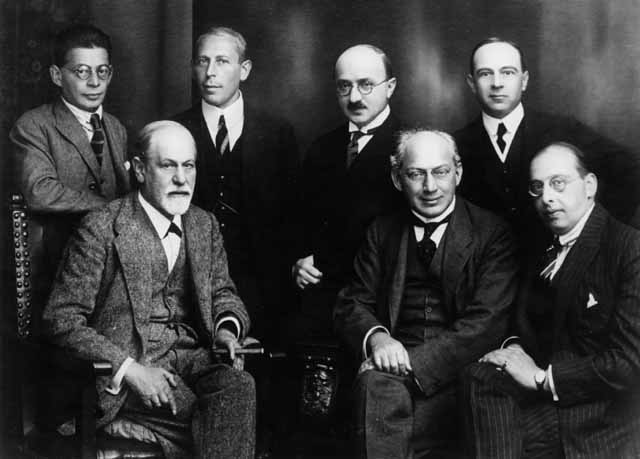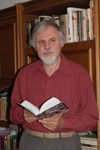
By Alex Gordon

HAIFA, Israel — Max Eitingon was born on June 26, 1881, in Mogilev, Russia, into the family of a fur trader who successfully continued the family business. In 1893 the Eitingon family left Russia and moved to Germany, to Leipzig, where Max’s father became one of the largest entrepreneurs, nicknamed “Leipzig Rothschild”. His firm Ch. Eitingon Aktiengesellschaft became the most famous in the world of fur business.
For health reasons (he had a severe stutter), Max could not get a secondary education: in Leipzig Gymnasium he studied only two years, completing his studies externally. At the age of eighteen, he began to study history, cultural philosophy and art at the universities of Leipzig and Halle, and in the winter of 1902 moved to Heidelberg, where for a year he studied at the Faculty of Medicine.
After studying in Marburg, where he combined medicine with the study of neo-Kantianism with the famous philosopher Hermann Cohen, Max moved to the medical faculty of the University of Zurich, where he studied psychiatry. In 1909 he defended his doctoral thesis On the Effect of the Seizure on the Associations of the Epileptic in Zurich and eventually became one of the foremost experts on psychoanalysis. Max was a brilliantly educated man, knew 13 languages, and belonged to the ranks of prominent European intellectuals.
In 1907, Eitingon met Sigmund Freud and became one of his closest associates and followers, becoming one of a committee of “chosen ones” who developed his teacher’s ideas (1919). In the early 1920s, Eitingon opened the Psychoanalytic Institute in Berlin on Potsdamerstrasse and a clinic attached to it.
From his student days, Max was interested in Zionism. In 1910 he visited Palestine for the first time. In August 1912 he married his second wife, the former Russian actress Mirra Burovskaya. During World War I, Eitingon became an Austrian citizen, joined the army as a doctor, and used hypnosis to treat soldiers who were war traumatized. Mirra followed him as a nurse. They served together in a Hungarian hospital for most of the war. His success in the hypnotic treatment of obsessive-compulsive disorder and war neuroses was rewarded by his promotion to Chief Medical Officer of the Military Hospital Department and the award of the Gold Cross for services to the Crown.
From 1918, Eitingon became the main sponsor of psychoanalysis and Freud personally: in fact, from 1918 to 1925, Freud’s family was supported by Eitingon; from the proceeds of the family business, Eitingon financed psychoanalytic institutes, supported the work of psychoanalytic communities, paid scholarships to trained analysts, published psychoanalytic literature, and held congresses of the International Psychoanalytic Association (IPA). He was director of the Berlin Psychoanalytic Institute, head of the IPA Training Committee for life, and president of the IPA from 1925 to 1932. After emigrating to Palestine (1933), he was the founder of the Palestinian Psychoanalytic Society and organizer of the Psychoanalytic Institute in Jerusalem.
In the early 1920s, the Eitingons lived in their own mansion in central Berlin, in the Tiergarten park district on Rauchstrasse 4. The psychoanalyst Joan Riviere, who came to Berlin from London to visit a colleague, described the “unusual-looking” fashionable mansion, “with a garden to the rear, with a glazed balcony,” and noted the remarkable modern taste that characterized its interior. The Eitingon house in Berlin was one of the centers of spiritual life of the European scientific and artistic elite, including representatives of the Russian emigration, and Max himself played the role of a patron of the arts, supporting various creative projects.
In addition to purely external signs of comfort and luxury – expensive furniture, wallpaper, carpets, chandeliers, a collection of antiquities, which abundantly decorated the Eitingons’ house – the owners showed an ostentatious interest in those treasures of true culture, where it is necessary not only a fine taste for home interior design, mixed with whimsical fantasy, but also high education, “aristocratism of spirit”: the house had a library of several thousand volumes, covering various fields of knowledge, paintings, rare autographs, which could afford to be bought not only by the rich, but – most importantly – well-informed and erudite people.
When the Nazis came to power in Germany in 1933, Eitingon as a Zionist left not only the Reich, but also Europe, and moved to Palestine, where he established the Palestine Society, the first analytical library and institute. Eitingon’s money was used to publish almost all of Freud’s later works and to create three Institutes of Psychoanalysis. But in the history of psychoanalysis Eitingon entered not only as a brilliant entrepreneur, successful merchant and popularizer of Freud’s ideas, but also as the author of a number of didactic studies.
He died on July 30, 1943, in Jerusalem.
In 1937, Max Eitingon’s name became associated with a high-profile spy story. In 1922-1923, the Berlin house of the Eitingons began to be visited by a couple, Russian singer Nadezhda Plevitskaya and her husband, former White general Nikolai Skoblin. They become close friends. But the Russian friends turned out to be agents of Soviet intelligence and kidnapped General Yevgeny Miller, chairman of the Russian Pan-Military Union. On September 22, 1937, Miller was invited by General Skoblin to meet with representatives of the German General Staff to discuss plans for a joint struggle against the USSR. Instead, Skoblin took him to a safe house of the People’s Commissariat of Internal Affairs in Paris, where Miller was captured and taken to Moscow.
Miller had providentially written a letter, from which, after his disappearance, Skoblin’s treachery became clear. The latter had to flee (his further fate is unknown), leaving Plevitskaya in Paris. The French police concluded that the singer was directly involved in the case. She was tried, found guilty, sentenced to 20 years in prison, and she ended her days in prison. Eitingon was accused of aiding a couple of Soviet spies, which he denied. The only “argument” in favor of cooperating with Soviet intelligence was that his relative was a Soviet spy.
*
Next Monday: Nahum Eitingon, Soviet assassin.
*
Alex Gordon is professor emeritus of physics at the University of Haifa and at Oranim, the academic college of education, and the author of 10 books.